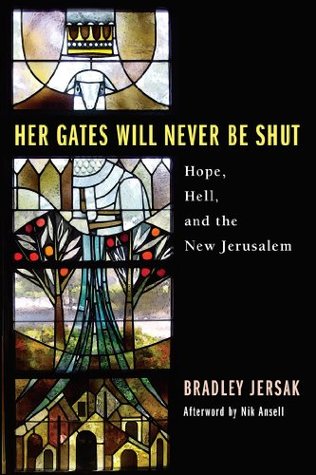More on this book
Community
Kindle Notes & Highlights
The stubborn fact is that Scripture is richly polyphonic on the topic of hell and judgment—as if by design. Thus, if we become dogmatic about any one position, we reduce ourselves to reading selectively or doing interpretive violence to those verses that don’t fit our chosen view.
Mercy triumphs over judgment; it does not skirt it.
With this revelation of God as our foundation, a punitive judgment of eternal torture in burning flames that can never satiate God’s wrath is not merely a paradox—it is a flat out contradiction.
Rather than acknowledge the variety of terms, images, and concepts that the Bible uses for divine judgment, the KJV translators opted to combine them all under the single term “hell.”
between the covers of our Bible, the authors plainly teach infernalism, annihilationism, and universalism—and
The wrath of the Lamb is that he honors our demands to release humanity’s chaotic will to self-destruct.
For Jeremiah, Gehenna was not so much a metaphor for personal damnation in the afterlife but rather, a portrait of mass destruction whenever God’s people rebel and make themselves a target for decimation by foreign armies.
Gehenna is judgment to be sure—and may even point secondarily to final judgment—but the picture is first of all about the destructive wake left behind by our sin here and now, not an afterlife of eternal, conscious torment. It is quite literally “the way of death.”
We ought to also note the irony and incongruence of the Church utilizing the very place where God became violently offended by the literal burning of children as our primary metaphor for a final and eternal burning of God’s wayward people in literal flames. Thus, God becomes the very Molech who decrees that the angels must deliver his children to the flames, even though this was the very reason he ordered Hinnom to be desecrated in the first place!
By way of analogy, when the children of Israel fled Pharaoh’s army, the presence of God stood between them as a pillar of fire. To God’s people, he was warmth, light, and comfort. To his enemies, he was darkness and terror. The same is true of the fiery furnace in the book of Daniel. To Daniel’s friends, the fire served to burn only the ropes of their bondage. Meanwhile, it incinerated their captors. In the end, the glory and love of Christ is that fire.
The point is that in the end, every spiritual pilgrimage is ultimately summed up in Jesus.
God deals with sin through correction, not punishment.
“If the Cross is about love and mercy rather than God’s need to satisfy wrath with punishment, what becomes of hell? Is there a need? Is it punitive? Is it eternal? Or could even hell be swallowed up in the Lordship of God’s eternal love?”
preterism
I am more hopeful of Jesus than I am sure of hell.


